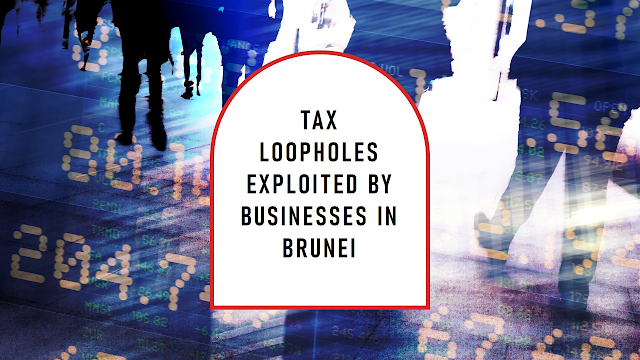Power in the Wrong Hands? Brunei's public sector faces a growing challenge from so-called "Little Napoleons"—mid-level bureaucrats who misuse their authority, causing delays and frustrations for businesses and citizens alike. As Brunei strives to become a key player in the East Asian region, can it overcome this hidden obstacle that threatens its reputation for efficiency? Discover how these power plays are quietly undermining progress in our latest report.
BANDAR SERI BEGAWAN 2 SEPTEMBER 2024: A recent incident allegedly involving an immigration officer in Brunei has sparked new concerns about a troubling issue within the public sector, often called the "Little Napoleon" syndrome. This term refers to mid-level bureaucrats who misuse their power, causing unnecessary delays and frustrations for the public.
The incident occurred at one of Brunei's ports, where a ship crew, despite following all immigration rules, was forced by an officer to report to the immigration office over supposed passport issues.
This situation could have been easily resolved on the spot, but the crew was delayed instead, leading to costly downtime for the ship.
This unnecessary action frustrated the crew and hurt Brunei's reputation as a place where doing business is supposed to be smooth and efficient.
This is particularly important as Brunei aims to become a competitive service hub for trade and transhipment in the East Asian region.
This case isn't unique. In 2020, His Majesty Sultan Haji Hassanal Bolkiah expressed concerns about similar abuses of power during an unannounced visit to the Ministry of Transport and Infocommunications.
The Sultan highlighted issues like cronyism, improper issuance of vehicle licenses, and lax customs inspections at Brunei International Airport.
He also pointed out that some people were reportedly bypassing official channels to get vehicle licenses, with reports of fake renewals avoiding proper checks.
These issues show that "Little Napoleon" behaviour is widespread, damaging the credibility of government institutions.
Back in 2017, His Majesty made it clear that those given power should not misuse it for personal gain or to mistreat others.
He emphasized that good public servants should serve honestly and sincerely, noting that efficiency is meaningless if it's used to harm people.
Brunei's public sector is known for its strict hierarchy, where authority is highly respected, and decisions are rarely questioned.
While this system keeps order, it also allows "Little Napoleons" to thrive. These officials often create unnecessary rules and procedures, causing delays and frustration for those needing government services.
The problem is not unique to Brunei, but it is particularly strong here due to the country's cultural and structural dynamics.
The emphasis on hierarchy and the reluctance to challenge superiors create an environment where these behaviours can go unchecked.
The impact of "Little Napoleons" is significant. What might seem like a small act of power can lead to costly delays and a decline in service quality.
More importantly, it damages Brunei's reputation as a place where business can be conducted smoothly, which is crucial for attracting international investment and promoting economic growth.
Understanding why "Little Napoleon" behaviour persists in Brunei requires looking at the broader cultural and structural factors.
The public sector is heavily influenced by values that place high importance on respecting authority and following tradition.
Combined with a strong hierarchical structure, this often means power is concentrated in the hands of a few, with little room for questioning or reform.
The lack of effective accountability measures makes the problem worse. While performance evaluations exist, they often aren't enough to stop those who misuse their power.
Without clear feedback channels and opportunities for public complaints, "Little Napoleons" can continue their behaviour with little fear of consequences.
Fixing the "Little Napoleon" problem will require a strong commitment to accountability and service.
The government has a system called TPOR (Tekad Pemedulian Orang Ramai), or the Client's Charter, which was introduced in 1995 to help improve service delivery in ministries and departments.
To make TPOR effective, public servants need better training on how to serve the public while using their authority wisely.
They must not misuse rules and regulations to complicate service delivery. Additionally, stronger accountability mechanisms, like regular performance reviews and accessible feedback channels, could help curb the excesses of these mid-level officials.
As Brunei modernises its public services, tackling the "Little Napoleon" syndrome is crucial to ensuring that the public sector serves the people effectively.
By doing so, Brunei can strengthen its reputation as a country where doing business is possible, efficient, and straightforward, supporting its ambition to become a leading service hub in the region. (MHO/09/24)
In a nutshell...
In Brunei, there is a worrying trend in the public sector involving mid-level bureaucrats, often referred to as "Little Napoleons," who abuse their power. This leads to unnecessary delays and frustrations, disrupting public services and jeopardizing Brunei's aspirations to become a competitive service hub in the region. Despite efforts to improve accountability, the persistent existence of these power struggles among bureaucrats raises concerns about the efficiency and reputation of the country's public sector.


.jpeg)



